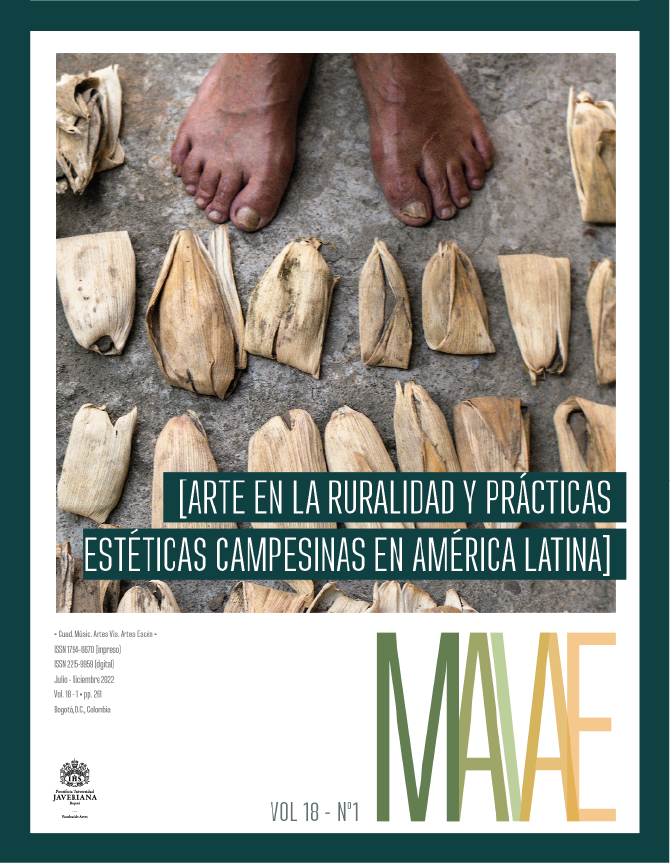Abstract
The artistic plays that refer to the Colombian conflict context provide a meaning field allowing a symbolic interpretation of the events that occurred in the factual reality. Using a hermeneutic analysis, this article starts from the notion of dramatic arch in order to study the links between the transformations occurring in the fiction world and the transformations occurring outside, i.e., the human realities. In this case, it refers to the realities of the communities that have lived in the Chocó territory a long time ago. Chocoan populations have a long history of marginalization and dispossession that can be tracked beyond the recent events and reveals a continuous oppression by foreign powers. This article recognizes such reality and provides a counterpoint comparison between the closed nature of two contemporary dramatic works (Kilele and Arimbato) and the open nature of the social reality. This analysis unveils how the ownership of the land, the public and economic policies protected by owners of large estates, and the exploitation of both the native people and all the natural resources have created structural and deep inequalities that are against the life itself and date back beyond the armed conflict.
This journal is registered under a Creative Commons Attribution 4.0 International Public License. Thus, this work may be reproduced, distributed, and publicly shared in digital format, as long as the names of the authors and Pontificia Universidad Javeriana are acknowledged. Others are allowed to quote, adapt, transform, auto-archive, republish, and create based on this material, for any purpose, provided the authorship is duly acknowledged, a link to the original work is provided, and it is specified if changes have been made. Pontificia Universidad Javeriana does not hold the rights of published works and the authors are solely responsible for the contents of their works; they keep the moral, intellectual, privacy, and publicity rights.
Approving the intervention of the work (review, copy-editing, translation, layout) and the following outreach, are granted through an use license and not through an assignment of rights. This means the journal and Pontificia Universidad Javeriana cannot be held responsible for any ethical malpractice by the authors. As a consequence of the protection granted by the use license, the journal is able to publish retractions or to correct information already published. Publishing contents in this journal does not generate royalties for contributors.


